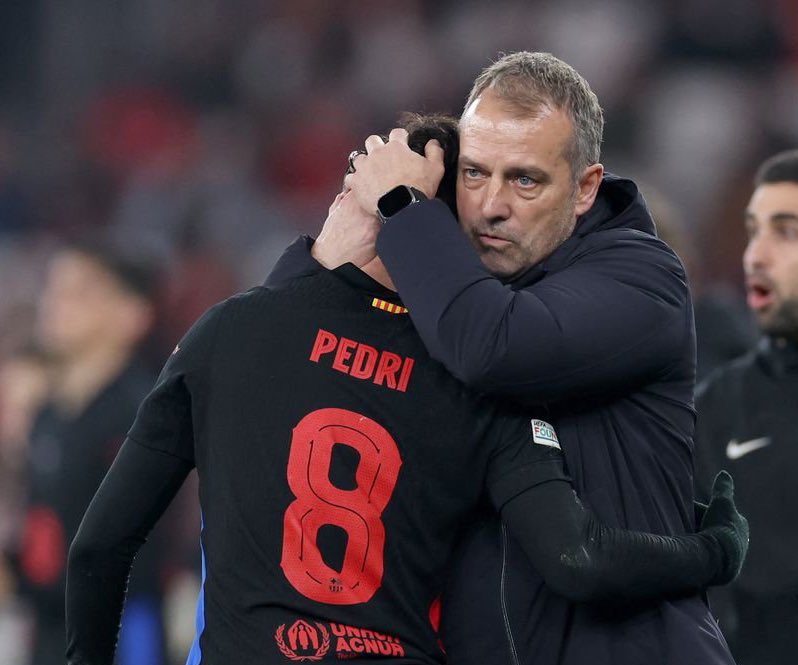In a recent interview, Barcelona midfielder Pedri has shed light on the current state of affairs at the club, specifically highlighting the impact of manager Hansi Flick’s tactical approach. Pedri’s comments have sparked a heated debate among fans and pundits, with many questioning whether Flick’s methods are the right fit for the Catalan giants.
Pedri, who has been an integral part of Barcelona’s midfield this season, was candid in his assessment of Flick’s influence on the team. “Hansi Flick has full responsibility for what is happening,” Pedri stated. “He has imposed a different way of playing than we had last year, especially in relation to the defensive line and the pressure we put up.”
Flick, who took the reins at Barcelona last summer, has indeed introduced a distinct tactical approach. The German manager has emphasized the importance of high-intensity pressing, a more aggressive defensive line, and a focus on quick transitions from defense to attack.
While Flick’s methods have yielded positive results in the past, particularly during his tenure at Bayern Munich, Pedri’s comments suggest that the players are still adapting to the new approach. “He has imposed his way of competing on us,” Pedri noted.
The 20-year-old midfielder’s remarks have sparked a lively debate among Barcelona fans and pundits. Some have argued that Flick’s tactical approach is too rigid and inflexible, while others believe that the players need to adapt and execute the manager’s instructions more effectively.
One of the main concerns raised by Pedri’s comments is the defensive line’s positioning. Under Flick, Barcelona have adopted a more aggressive defensive line, which has sometimes left them exposed to counter-attacks. The team’s defensive record has been inconsistent this season, with some impressive clean sheets interspersed with alarming lapses in concentration.
Another area of concern is the pressure applied by the team. While Flick’s emphasis on high-intensity pressing has yielded some positive results, it has also led to moments of exhaustion and disorganization. Pedri’s comments suggest that the players are still finding their rhythm and timing in terms of applying pressure and transitioning from defense to attack.
Despite these concerns, Pedri’s comments should not be interpreted as a direct criticism of Flick’s tactics. Rather, they represent a nuanced assessment of the team’s current situation and the challenges they face in adapting to the manager’s approach.
As Barcelona navigate the complexities of the season, Pedri’s comments serve as a timely reminder of the importance of flexibility and adaptability. While Flick’s tactical approach has its merits, the players must also be able to adjust and respond to different situations and opponents.
Ultimately, the success of Flick’s tenure at Barcelona will depend on his ability to balance his tactical vision with the needs and strengths of his players. Pedri’s comments offer a valuable insight into the team’s current dynamics and the challenges they face in implementing Flick’s approach.
As the season unfolds, Barcelona fans will be watching with bated breath to see how the team responds to these challenges. Will Flick’s tactics ultimately prove successful, or will the team need to adapt and evolve in order to achieve their goals? Only time will tell.
